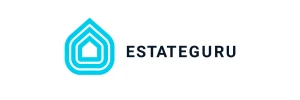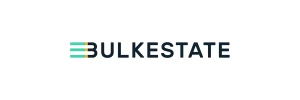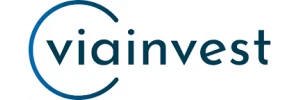Company Overview and Digital Lending Foundation
Enova International Inc., a publicly traded company on the New York Stock Exchange under the ticker “ENVA,” has carved a significant niche in the digital lending landscape since its founding in 2004. Headquartered in Chicago, Illinois, this Delaware-incorporated entity operates with a clear mission: to provide fast, convenient, and responsible credit access to underserved consumers and small businesses through its sophisticated digital platform.
The company's core strength lies in its proprietary technology platform, known as "Colossus." This advanced system leverages machine-learning analytics to power automated application intake, real-time risk assessment, and efficient digital servicing. This technological edge allows Enova to make rapid lending decisions, often within seconds, and disburse funds quickly, which is a critical advantage for its target market. Enova primarily serves non-prime and near-prime consumers through brands like CashNetUSA and NetCredit, while its Small and Medium Business (SMB) financing solutions are offered under the OnDeck and Headway Capital brands. This diversified portfolio allows Enova to address a broad spectrum of financial needs across different segments of the United States economy.
Enova boasts a stable and experienced leadership team, with executives like David A. Fisher, Chairman and CEO, having served for over a decade. This continuity, combined with deep domain expertise, underpins the company's strategic direction and operational efficiency. Institutional investors hold a substantial portion of Enova's shares, signifying confidence in its business model and growth trajectory. The company's commitment to innovation and its data-driven approach position it as a leader in the FinTech sector, continuously adapting its offerings to meet evolving market demands and regulatory landscapes.
Loan Products, Terms, and the Application Journey
Enova International Inc. offers a diverse array of loan products tailored to both individual consumers and small businesses, each designed with specific financial needs in mind. Understanding the nuances of these offerings, including interest rates, fees, and application processes, is crucial for potential borrowers in the United States.
Consumer Loan Offerings:
- Single-Pay Advances: Ranging from $150 to $4,000, these short-term loans typically have terms between two weeks and twenty-four months, carrying Annual Percentage Rates (APRs) from 100% to 450%. These are often used for immediate, smaller financial gaps.
- Installment Loans: For larger needs, installment loans are available from $1,000 to $10,500, with repayment periods stretching from six to sixty months. APRs for these loans generally fall between 34% and 155%, catering to near-prime borrowers.
- Lines of Credit: Offering flexibility, lines of credit from $150 to $4,000 are open-ended, allowing borrowers to draw and repay funds as needed, with principal paydown requirements. APRs are similar to single-pay advances, ranging from 100% to 450%.
Small Business Financing:
- Lines of Credit: SMBs can access lines of credit from $5,000 to $100,000. These are either open-ended or structured with twelve to eighteen-month terms, featuring APRs between 40% and 80%.
- Term Loans: For specific business investments, term loans range from $10,000 to $200,000, with repayment terms of six to twenty-four months and APRs between 40% and 80%.
- Higher-Ticket Credit (via OnDeck): Larger businesses can secure up to $250,000 with twelve to eighteen-month terms, where APRs typically range from 60% to 99%.
Fees Structure: Enova's loans come with various fees. Origination fees can range from 1% to 8% of the loan amount. Processing fees are variable, depending on state-specific regulations. Late payment fees are typically between $25 and $35 or 5% of the overdue amount, a detail that borrowers should carefully note. Collateral requirements are generally unsecured for most consumer and smaller SMB loans, but larger SMB financing may require security through receivables or personal guarantees.
Application Process: The entire application process is fully digital, accessible via Enova's brand websites and mobile applications (iOS and Android). There are no physical branches; customer support is handled through call centers. The Know Your Customer (KYC) and onboarding process involves identity verification through third-party data sources, automated income and employment verification, and sometimes requires video or ID document uploads. Enova's proprietary "Colossus" platform drives the credit scoring and underwriting process, utilizing both traditional credit bureau data and alternative data such as transactional and behavioral patterns. This enables real-time decisioning, with many approvals occurring in under thirty seconds. Funds are typically disbursed via bank ACH transfers, although prepaid debit cards are also an option. Collection and recovery efforts include automated reminders, mobile app notifications, in-house teams for delinquency management, and third-party agencies for severely delinquent accounts.
Technology, Reach, and Regulatory Framework in the United States
Enova International Inc.'s operational backbone is its robust digital technology, which not only facilitates its lending processes but also defines its broad reach across the United States. Its commitment to compliance ensures it operates within the complex regulatory environment of digital finance.
The company's digital presence is anchored by its mobile applications and websites. Enova offers mobile apps for both iOS and Android platforms, providing users with convenient access to their loan accounts. These apps are generally well-received, with average ratings of 4.2/5 on the App Store and 4.0/5 on Google Play, reflecting a positive user experience. Key features include a loan management dashboard, payment scheduling capabilities, and direct access to customer chat support, enhancing borrower autonomy and interaction. The main Enova.com website serves as a central hub, linking to its various brand portals, investor relations information, and crucial compliance disclosures.
Geographically, Enova's consumer lending operations span 38 states in the U.S., focusing on jurisdictions that allow for its non-prime product offerings. Its SMB financing, through brands like OnDeck, enjoys nationwide coverage, making its services accessible to businesses across all states. This extensive reach allows Enova to serve a substantial customer base, with over 1.2 million active borrowers as of Q2 2025. The typical consumer borrower is around 42 years old, with an average income of $41,000, and approximately 32% are homeowners, indicating a clear focus on the subprime market. SMB clients are generally established, with a median of 11 years in business and average revenues of $1.3 million, highlighting the company's role in supporting experienced entrepreneurs.
From a regulatory standpoint, Enova operates under strict oversight in the United States. It is licensed as a lender or servicer in all jurisdictions where it conducts business. This means it is subject to the rules and regulations of the Consumer Financial Protection Bureau (CFPB) at the federal level, as well as various state banking commissions and financial regulatory bodies. The company has a clean record over the past five years, with no material penalties or enforcement actions reported, underscoring its commitment to regulatory adherence. Enova implements several consumer protection measures, including transparent fee disclosures, hardship programs, and payment extensions for struggling borrowers. Furthermore, its data privacy practices are compliant with the Gramm-Leach-Bliley Act (GLBA), ensuring the security and confidentiality of customer information.
Market Position, Competition, and Customer Experience Insights
Enova International Inc. holds a significant and well-defined position within the competitive landscape of digital lending in the United States, distinguishing itself through speed, analytical prowess, and a diversified funding strategy. Understanding its market standing, key competitors, and customer feedback is essential for a complete profile.
In the U.S. subprime consumer market, Enova ranks among the top three non-bank lenders. For FinTech SMB lending, it is a leading player based on receivables outstanding, demonstrating its substantial footprint in both segments. Its primary competitors in the consumer space include OppFi, LendingClub, and Credit Karma. In the SMB sector, it competes with major players like Kabbage (now part of American Express), BlueVine, and Funding Circle. Enova's differentiation primarily stems from three key areas: its unparalleled speed in underwriting, often delivering sub-minute decisions; its sophisticated, continuously updated machine-learning risk models; and its diversified funding sources, including securitizations and note issuances, which provide financial stability and flexibility.
The company is in a growth phase, with originations increasing significantly year-over-year. Plans include expanding its consumer lending footprint into five additional states by 2026 and exploring new product lines such as insurance and embedded finance partnerships. Enova also engages in strategic partnerships, including bank distribution agreements for co-branded lines of credit, further extending its market reach and product offerings.
Customer experience, as reflected in user reviews and ratings, provides valuable insights. Brands like CashNetUSA hold a 3.8/5 rating on Trustpilot, while NetCredit scores 4.0/5 on Google Play, and OnDeck rates 4.1/5 on the App Store. While these ratings are generally positive, common complaints often revolve around the high APRs associated with short-term advances and strict enforcement of late fees, which are typical characteristics of the subprime lending market. Occasional delays in funding for new customers are also noted. Despite these challenges, Enova's customer service quality is generally considered strong, with a 24/7 call center boasting an average hold time of just two minutes and an online chat resolution rate of 85%. Success stories highlight the positive impact of Enova's services, such as an SMB client securing a $100,000 line of credit in 24 hours to expand operations, and a subprime borrower improving their credit score after eighteen months on an installment plan. These anecdotes underscore the real-world utility and potential benefits of Enova's financial solutions.
Practical Advice for Potential Borrowers and Financial Health Summary
For individuals and small businesses in the United States considering Enova International Inc. for their lending needs, it is crucial to approach the decision with informed caution and a clear understanding of the implications. As a financial expert, I offer the following practical advice, alongside a brief overview of Enova's financial health, to help potential borrowers make sound choices.
Understand the Costs: Enova serves a market segment that often faces higher borrowing costs. While convenient, the Annual Percentage Rates (APRs) on many consumer products, especially single-pay advances and lines of credit, can be very high, ranging from 100% to 450%. Small business loans also carry significant APRs, typically between 40% and 99%. Borrowers must meticulously review all terms, conditions, origination fees (1-8%), processing fees, and late payment fees ($25-$35 or 5% of overdue amount) before committing. Ensure you can comfortably afford the repayment schedule, as missed payments can lead to additional charges and negative impacts on your credit score.
Evaluate Your Need and Alternatives: Before applying, honestly assess if an Enova loan is the most suitable option. For emergencies, their speed can be beneficial, but for less urgent needs, explore lower-cost alternatives like credit unions, secured loans, or even negotiating with existing creditors. For small businesses, traditional bank loans or Small Business Administration (SBA) loans often offer more favorable rates if you qualify. Enova's products are generally designed for those who may not qualify for conventional financing due to credit history or immediate funding requirements.
Leverage for Credit Building: For consumers, if managed responsibly, some installment loan products can potentially help improve your credit score over time, as positive payment history is reported. However, this only applies if you make all payments on time and in full. Late payments will have the opposite, detrimental effect.
Utilize Digital Tools: Enova's mobile apps and online portals are designed for convenience. Use features like payment scheduling and account management to stay on top of your obligations and avoid late fees. Engage with their customer support via chat or phone if you encounter difficulties, as they offer hardship programs and payment extensions.
Financial Performance Context: From a financial perspective, Enova is a robust and growing entity. In 2024, the company reported revenues of $907 million and a net income of $62 million. As of Q2 2025, its adjusted EBITDA margin stood at 22%, indicating healthy operational profitability. The total receivables in its loan portfolio reached $4.3 billion in Q2 2025, showing significant scale. While the non-performing loan rate was 8.5% (down from 9.2% year-over-year) and annualized default rates were 14% for consumer loans and 7% for SMB loans, Enova maintains a strong provision coverage of 1.8 times expected losses, reflecting prudent risk management. This financial stability suggests the company has the capacity to continue serving its customer base effectively, but it also underscores the inherent risks and costs associated with lending to the non-prime market.
In conclusion, Enova International Inc. provides a vital service to segments of the United States population and small business community that often face challenges in accessing traditional credit. While their digital convenience and speed are undeniable advantages, potential borrowers must proceed with a comprehensive understanding of the associated costs and a clear plan for responsible repayment. Informed decision-making remains paramount when engaging with any financial product, especially in the digital lending space.








